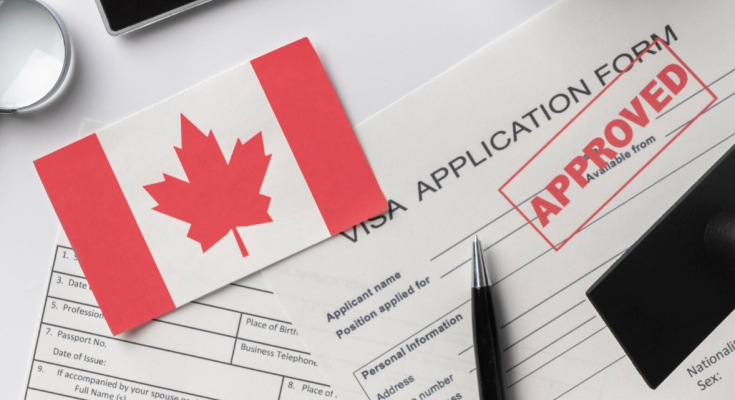Canada is a country known for its welcoming nature, strong economy, and high standard of living. Many individuals aspire to move to Canada to pursue better opportunities and a higher quality of life. If you’re considering a move to Canada, there are several important factors to consider and steps to follow. In this article, we will provide valuable tips to help you navigate the process of moving to Canada successfully.
Moving to a new country can be an exciting yet challenging experience. Canada, with its diverse culture, thriving job market, and picturesque landscapes, attracts people from all over the world. Whether you’re moving for work, education, or a better lifestyle, careful planning and preparation are crucial for a smooth transition. Let’s explore some essential tips to make your move to Canada a success.
Table of Contents
Research and Planning
Before making any decisions, it’s important to conduct thorough research and create a well-thought-out plan. Consider the following aspects:
Understand Canadian Immigration Policies
Familiarize yourself with the Canadian immigration policies and regulations. Understand the different immigration programs available and their eligibility criteria. This will help you determine the most suitable route for your specific circumstances.
Choose the Right Immigration Program
Canada offers various immigration programs, such as the Express Entry system, Provincial Nominee Programs (PNPs), and family sponsorship. Assess your qualifications, skills, and personal circumstances to identify the program that aligns with your goals and qualifications.
Research Provinces and Cities
Research different provinces and cities in Canada to find the one that suits your preferences and lifestyle. Consider factors such as job opportunities, cost of living, education facilities, healthcare, and climate. Each province offers unique advantages, so it’s important to choose a location that aligns with your needs.
Gathering Required Documents
To initiate the immigration process, you’ll need to gather various documents. Ensure you have the following in order:
Passport and Other Identification Documents
Make sure your passport is valid for at least six months beyond your intended stay in Canada. Additionally, gather other identification documents, such as birth certificates, marriage certificates, and driver’s licenses.
Educational Documents
Collect your educational documents, including transcripts, degrees, diplomas, and certificates. These may be required for educational credential assessments or for proving your qualifications during the immigration process.
Work Experience and References
If you have work experience, gather reference letters from previous employers, outlining your roles, responsibilities, and duration of employment. These references can be valuable when applying for jobs or during the immigration process.
Language Proficiency and Tests
Proficiency in English or French is essential for most immigration programs in Canada. Take the following steps to assess your language skills:
Language Proficiency Requirements
Understand the language proficiency requirements for your chosen immigration program. Different programs may have specific minimum language scores, such as the International English Language Testing System (IELTS) or the Canadian English Language Proficiency Index Program (CELPIP).
Language Tests
Schedule and take the necessary language tests to assess your proficiency. Prepare well in advance by practicing sample questions and improving your language skills if required.
Evaluating Educational Credentials
If you have obtained your education outside of Canada, your educational credentials may need to be evaluated. Follow these steps:
Educational Credential Assessment
Submit your educational documents to a designated organization for an educational credential assessment (ECA). This assessment will determine the Canadian equivalent of your foreign credentials.
Transcripts and Evaluations
Request official transcripts from your educational institutions to be sent directly to the designated organization. Ensure that you meet all the requirements and submit the necessary fees for the evaluation.
Applying for Canadian Visas or Permits
Depending on your situation and immigration program, you may need to apply for specific visas or permits. Consider the following options:
Express Entry Program
For skilled workers, the Express Entry program is a popular choice. Create an online profile, showcasing your qualifications and work experience. If you meet the criteria, you may receive an invitation to apply for permanent residency.
Provincial Nominee Programs
Provincial Nominee Programs (PNPs) allow provinces to nominate individuals based on their specific labor market needs. Research and apply for the PNPs available in your desired province.
Study Permits and Work Permits
If you plan to study or work temporarily in Canada, you may need to apply for study permits or work permits. Understand the requirements and application process for these permits and submit your applications accordingly.
Planning Your Finances
Moving to a new country requires careful financial planning. Consider the following aspects:
Cost of Living and Budgeting
Research and understand the cost of living in Canada, including accommodation, transportation, healthcare, and daily expenses. Create a budget that accounts for these costs and ensures financial stability during your transition.
Financial Stability and Proof of Funds
Some immigration programs require applicants to demonstrate financial stability. Prepare the necessary documents and proof of funds, such as bank statements, to show that you can support yourself and your family upon arrival in Canada.
Settling in Canada
Once you arrive in Canada, there are important aspects to consider for a smooth settlement:
Finding Accommodation
Research and secure accommodation before your arrival or plan temporary housing arrangements. Explore options such as renting an apartment, sharing accommodation, or staying in a hostel or hotel initially.
Healthcare and Insurance
Familiarize yourself with the Canadian healthcare system and understand the process of obtaining health insurance. Apply for the necessary healthcare coverage to ensure access to medical services.
Job Search and Employment
If you’re moving to Canada for work, begin your job search in advance. Update your resume, tailor it to the Canadian job market, and leverage online job portals and professional networks. Attend job fairs and connect with local employment agencies to increase your chances of finding employment.
Conclusion
Moving to Canada can be an exciting and life-changing experience. By following these tips and adequately preparing for the immigration process, you can increase your chances of a successful move. Remember to research, plan, gather the necessary documents, and stay proactive throughout the journey. Canada offers a wealth of opportunities and a welcoming environment for individuals seeking a better future.
FAQs
1. Can I move to Canada without a job offer?
Yes, it is possible to move to Canada without a job offer. The Express Entry program and some Provincial Nominee Programs (PNPs) do not require a job offer. However, having a job offer can enhance your chances of successful immigration.
2. How long does it take to immigrate to Canada?
The processing time for immigration applications varies depending on the program and individual circumstances. It can range from a few months to over a year. Stay updated with the processing times provided by the Canadian immigration authorities.
3. Do I need a sponsor to move to Canada?
Not all immigration programs require a sponsor. However, some programs, such as family sponsorship, do require a Canadian citizen or permanent resident sponsor. Check the requirements of your chosen program to determine if a sponsor is necessary.
4. Can I bring my family with me when I move to Canada?
Yes, you can bring your immediate family members with you when you move to Canada, depending on the specific immigration program. Spouses, partners, and dependent children may be eligible for accompanying you.
5. Do I need to have a certain amount of money to move to Canada?
Some immigration programs require applicants to demonstrate financial stability by providing proof of funds. The required amount varies depending on the program and the number of family members immigrating with you. Ensure you meet the financial requirements of your chosen program.

